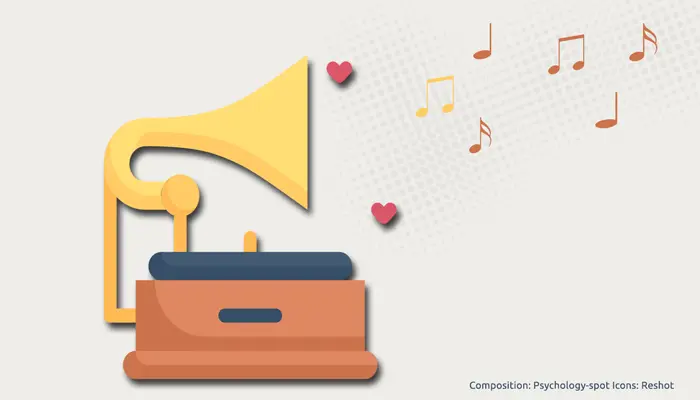
It is likely that when we were teenagers, our parents told us that the music we listened to was “loud”. They did not like it. And they didn’t understand how we could like it. Over time, as we approach 40, we begin to think that “is no longer made good music” and become more attached to familiar singers and songs.
Our musical tastes begin to crystallize in adolescence, when we are between 13 or 14 years old, as revealed by an analysis conducted by The New York Times based on the music that users listen to on Spotify.
When we reach the age of 20 our musical tastes are practically blocked quite firmly and at 33 years of age most people have stopped listening and looking for new music. From that age, we prefer to relive the soundtrack of the previous two decades of our life. That means that it is likely that the most popular songs of our adolescence and youth continue to be preferred for the rest of our lives or, at least, we dedicate them a special place in our musical memory.
From the age of 40, for our brain everything starts to sound more or less the same
There is a neuroscientific explanation for our reluctance to new music. A study conducted at the University of Manchester revealed that the brain’s ability to distinguish between certain sounds decreases as we age.
These researchers recruited two groups of people: one made up of people over 40 and another made up of younger people. Each group had to describe how pleasant they felt several pairs of notes played on a scale, while their neural responses were recorded.
Older people found that consonant chords (those that have matching tones and are more comfortable) were less pleasant and dissonant chords (those that sound more irritating and messy) were more pleasant, compared to the young.
The fact that the perception of consonance and dissonance is greatly reduced means that they have a more restricted average range of listening. In short, as we age, new and less familiar songs begin to sound the same to us, and that is why we are more reluctant to them.
Mere-Exposure Effect: Tell me how much you have heard a song and I will tell you how much you will like it
Of course, we cannot blame only the brain of our “dislike” for new music. The mere-exposure effect is another compelling reason. It is a phenomenon that explains that, the more we are exposed to a situation, the more familiar it is to us and the more we like it.
When we are in adolescence and youth, we listen to a lot of music, so that some singers, groups and songs become part of the soundtrack of those years, they become familiar and even comforting by listening to them again and again.
However, when we enter our 30s, new work and family obligations reduce our leisure time, so that we can spend less hours discovering new music and we cannot expose ourselves so much to it as to become as familiar as songs of our adolescence and youth.
That can make that, if we have to choose between listening to new music or old acquaintances, we choose the latter.
What music makes us feel also counts
Last but not least, emotions play an essential role in our reluctance to new music. A study conducted at McGill University found that our favorite songs activate the pleasure areas of the brain inducing the release of neurotransmitters that make us feel very good, such as dopamine, serotonin and oxytocin. And the more we like the song, the more intense that effect will be.
In fact, it has been appreciated that when we know a song, our brain anticipates some milliseconds to the high points of the melody, triggering that cocktail of neurotransmitters that floods us. It is a kind of “neuronal nostalgia” that makes us feel good, activating positive memories. So, if we have little time to listen to music, we probably will not hesitate: we will choose those familiar songs that generate that wave of pleasant sensations.
Not all is lost
Every rule has its exception. While it is true that over time we explore less the music scene, that does not mean that we are condemned to listen to the same songs of the past over and over again. If we expose ourselves to new music, we will keep our brain active and be able to discriminate the sounds better. The more music we listen to, the more receptive our neurons will be.
Sources:
McAndrew, F. T. (2019) Psychology tells us why older people don’t enjoy new music. In: QZ.
Bones, O. & Plack, C. (2015) Losing the Music: Aging Affects the Perception and Subcortical Neural Representation of Musical Harmony.The Journal of Neuroscience; 35(9): 4071-4080.
Blood, A. J. & Zatorre, R. J. (2001) Intensely pleasurable responses to music correlate with activity in brain regions implicated in reward and emotion. Proc Natl Acad Sci U S A; 98(20): 11818–11823.



